
Hemanta Mukhopadhyay, known professionally as Hemant Kumar and Hemanta Mukherjee, was a legendary Indian music director and playback singer who primarily sang in Bengali and Hindi, as well as other Indian languages like Marathi, Gujarati, Odia, Assamese, Tamil, Punjabi, Bhojpuri, Konkani, Sanskrit and Urdu. He was an artist of Bengali and Hindi film music, Rabindra Sangeet, and many other genres. He was the recipient of two National Awards for Best Male Playback Singer and was popularly known as the "voice of God".

Lata Mangeshkar was an Indian playback singer and occasional music composer. She is considered to be one of the greatest and most influential singers of the Indian subcontinent. Her voice was one of the unifying elements of the people of India, Pakistan, Bangladesh and Nepal. Her contribution to the Indian music industry in a career spanning eight decades gained her honorific titles such as the "Queen of Melody", "Nightingale of India", and "Voice of the Millennium".

Prabodh Chandra Dey, known by his stage name Manna Dey, was a renowned Indian playback singer, music director, and musician. He had a classical music background, being part of the Bhendibazaar Gharana and receiving training under Ustad Aman Ali Khan. Manna Dey is widely recognized as one of the most versatile and celebrated vocalists in the Hindi film industry, and is often acknowledged for his significant contributions to integrating Indian classical music into Hindi commercial cinema. As a musician, Dey is particularly acclaimed for incorporating Indian classical music elements into a pop musical framework, a contribution that played a pivotal role during the golden era of Hindi cinema.
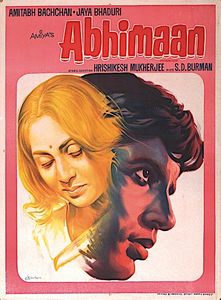
Abhimaan is a 1973 Indian Hindi musical drama film directed by Hrishikesh Mukherjee, starring Amitabh Bachchan, Jaya Bachchan, Asrani, Bindu and David.The film was loosely based on the 1970 Bengali Film Bilambita Loy starring Uttam Kumar and Supriya Devi.

The Filmfare Best Female Playback Award is given by Filmfare as part of its annual Filmfare Awards for Hindi films, to recognise a female playback singer who has delivered an outstanding performance in a film song.

The National Film Award for Best Female Playback Singer is an honour presented annually at the National Film Awards of India since 1968 to a female playback singer for the best renditions of songs from soundtracks within the Indian film industry. The National Film Awards were called the "State Awards for Films" when established in 1954. The State Awards instituted the "Best Female Playback Singer" category in 1968. Throughout the years, accounting for ties and repeat winners, the Government of India has presented a total of 53 Best Female Playback Singer awards to 30 different female playback singers.

GeetashreeSandhya Mukherjee was an Indian playback singer and musician, specialising in Bengali music. She received Banga Bibhushan, the highest civilian honour of the Indian state of West Bengal in 2011. She also won the National Film Award for Best Female Playback Singer for her songs in the films Jay Jayanti and Nishi Padma in the year 1970.
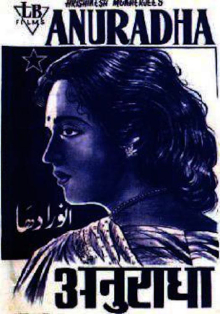
Anuradha is a 1960 Hindi-language Indian film produced and directed by Hrishikesh Mukherjee. The film stars Balraj Sahni and Leela Naidu in lead roles along with Asit Sen and Mukri. The film is noted for being Miss India Naidu's debut film.
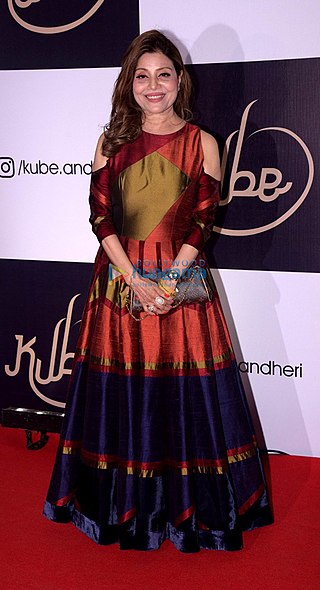
Sapna Mukherjee is a Bollywood playback singer who won the Filmfare Award for Best Female Playback Singer for the song "Tirchi Topi Wale" in Tridev (1989).

The Odia cinema, colloquially known as Ollywood, is the Odia language Indian film industry, based in Bhubaneshwar and Cuttack in Odisha, India. The name Ollywood is a portmanteau of the words Odia and Hollywood.
The 17th Filmfare Awards were held on May 11, 1970.
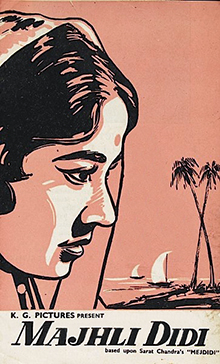
Majhli Didi is a 1967 Bollywood film directed by Hrishikesh Mukherjee, based on the Bengali language story, Mejdidi by Sarat Chandra Chattopadhyay, which was earlier filmed in Bengali in 1950 as Mejdidi. Majhli Didi stars Meena Kumari and Dharmendra.
Stree is a 1961 Indian fantasy film directed by and starring V. Shantaram, Sandhya. It is based on the play Abhijnanashakuntalam by Kalidasa. The film was selected as the Indian entry for the Best Foreign Language Film at the 34th Academy Awards, but was not accepted as a nominee. The film has music by C. Ramchandra and lyrics by Bharat Vyas. Lata Mangeshkar, Asha Bhosle, Mahendra Kapoor and Manna Dey lent their voices. "Aaj Madhuvatas Dole Madhurima Se Pran Bhar Lo" sung by Lata Mangeshkar and Mahendra Kapoor was a popular song of the era.

Bangladesh National Film Award for Best Female Playback Singer is the highest award for female film playback singers in Bangladesh.
Robin Chatterjee was an Indian music director and sound recordist who scored music for about ninety films. Starting from the 1942 film Parineeta, he has composed music for evergreen soundtracks such as Godhuli, Bipasha, Sagarika, Kamallata, Dwiper Nam Tiya Rang, etc.
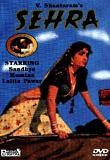
Sehra (Desert) is a 1963 Hindi romantic family drama film directed by V. Shantaram, who also wrote the screenplay. The story and dialogue writer was Shams Lucknowi. Made by Shantaram Productions, it had music composed by Ramlal with lyrics by Hasrat Jaipuri. The actress Mumtaz played a small character role in this film and also in Shantaram's earlier Stree (1961). The film starred Sandhya, Prashant, Mumtaz, Lalita Pawar, Manmohan Krishan, Ulhas, Babloo, M. Rajan and Baburao Pendharkar.

Parchhain (Shadow) is a 1952 Hindi romantic melodrama film directed by V. Shantaram. The production company was Rajkamal Kalamandir. The story and dialogue were by Shams Lakhnavi, with cinematography by G. Balakrishna. Music direction was by C. Ramchandra and the lyricists was Noor Lakhnavi.
The 28th Annual Bengal Film Journalists' Association Awards were held on 1965, honoring the best in Indian cinema in 1964.
Alor Pipasa is a Bengali drama film directed by Tarun Majumder and produced by Debesh Ghosh based on a same name novel of Balai Chand Mukhopadhyay. This film was released on 15 January 1965 under the banner of D.R. Productions. Music of the movie was done by Hemanta Mukherjee.